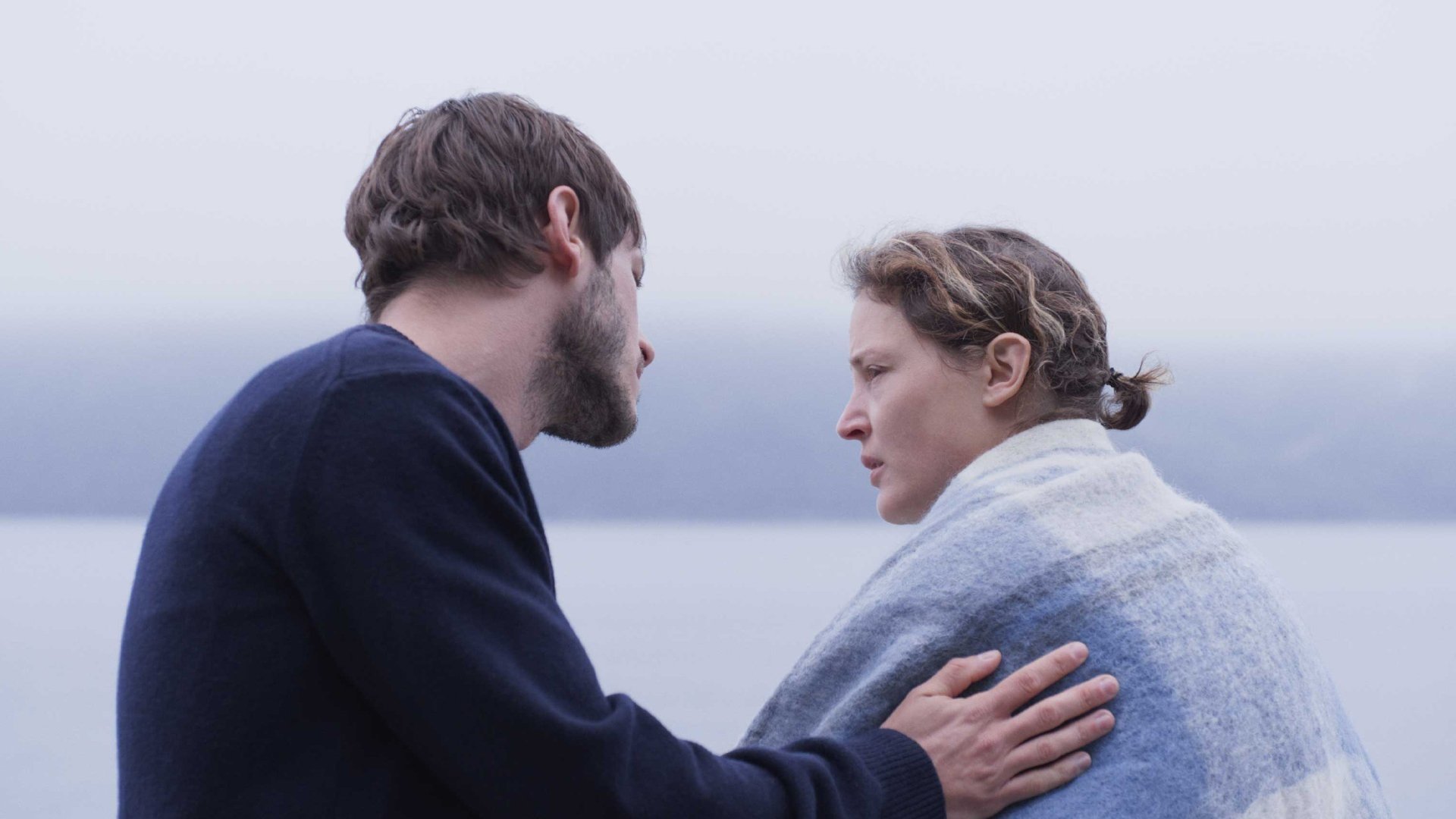More Than Ever
Vicky Krieps excels yet again in a romantic drama that stares death in the face.
Gaspard Ulliel and Vicky Krieps
I have already named Vicky Krieps as my actress of the year for 2022 for her performance in Corsage, but that was not the only film that she has made in the last twelve months. Although it reaches us in 2023, More Than Ever also bears the date 2022. Add that last year also saw the slightly delayed UK release of two more films of hers, Hold Me Tight, and Bergman Island, and this seems to be the moment when the immense promise of her performance in 2017’s Phantom Thread has finally blossomed into international acclaim that recognises her as one of the finest film actresses of her generation. That standing is indeed confirmed by this latest achievement for More Than Ever is bound to lead to her name appearing also on any list of candidates for Best Actress in a 2023 release.
As was the case with her Empress Elisabeth of Austria in Corsage, Emily Atef’s More Than Ever gives Vicky Krieps a role that seems tailor-made for her. That is due to her ability to express so much through her face that what we see often seems to tell us more about the interior emotions experienced by her characters than the words that she is given to speak. That is at the core of More Than Ever because this film invites its viewers to empathise with the situation of its central figure, Hélène Mouchet. She is a married woman of 33, who, when we first meet her, has discovered that she is suffering from a lung disease so potent that it will kill her unless she elects to have a double lung transplant, a procedure which, even if a donor could be found, would carry no guarantee of success.
That is the kind of situation, accentuated as it is by Hélène’s comparatively young age, that is far from unknown in films that could be described as romantic weepies. More Than Ever, written by Atef herself with Lois Hubrich, could not be further away from that approach. It is resolutely unsentimental and puts its focus firmly on the difficulties that affect any person faced with such a diagnosis and, equally, on anyone who is the partner of a person in that situation. In this case, the latter is Hélène's affectionate husband, Matthieu (Gaspard Ulliel). For much of its length the film concentrates on just three people, these two and a man with cancer, Bent (Bjørn Floberg), who lives in Norway beside a fjord. Early scenes show how uneasy Hélène is with friends who, concerned about her, don't really know what to say to her and what not to say. She is more relaxed with Bent even though she has only encountered him as a blogger and that is because of the extent to which their situation is the same. He has a former boathouse which he lets out as a cabin and, despite not having met him in person, Hélène opts to take a train journey from Bordeaux to Norway and to do so on her own. It's not just the empathy she feels with Bent’s words that draws her but the prospect of time to herself to ponder her situation and quite possibly to decide not to have the operation – all this in the invitingly tranquil setting of a Norwegian fjord.
It is Bent who declares that the living cannot understand the dying, and that thought is at the heart of this film which is a harsh, sombre reflection on death, yet one with insights into the personal conflicts arising. We can understand Hélène wanting to get away on her own, but equally we see that Matthieu is dismayed and angry by her cutting down the time they can share in what may well be her last days. Similarly, it is easier for her to resist the idea of major surgery that could lead to her dying in hospital than it is for him to accept that she might choose not to challenge fate. Each of them is experiencing an intensity in their own feelings that makes them selfishly ignore the innermost feelings of the other.
The well-photographed More Than Ever plays in effect like a three-act work. Act I, the most assured of the three, takes place in Bordeaux, while Act II deals with Hélène’s solo visit to Norway and Act III sees Matthieu following her there. The last two Acts are more slowly paced which is fair enough, but at two hours or so the film seems rather longer than the subject-matter requires. Also, given the sense of reality that marks the piece, periodic stylised, touches (mainly shots of water and of birds in flight) strike an inappropriate note. However, the grim nature of the tale is effectively countered by a couple of tender love scenes and, if Krieps is outstanding, there is no doubt that she is not let down by her co-star, Gaspard Ulliel. That Ulliel himself tragically died in a skiing accident shortly after completing the film does, inevitably, add to the sadness of what is undoubtedly a very perceptive film and one that now carries its own dedication: ‘Pour Gaspard’.
Original title: Plus que jamais.
MANSEL STIMPSON
Cast: Vicky Krieps, Gaspard Ulliel, Bjørn Floberg, Sophie Langevin, Valérie Bodson, Jérémy Barbier d’Hiver, Marion Cadeau, Yacine Sif El Islam.
Dir Emily Atef, Pro Xénia Maingot, Screenplay Emily Atef and Lars Hubrich, Ph Yves Cape, Pro Des Silke Fischer, Ed Sandie Bompar and Hansjörg Weißbrich, Music Jon Balke, Costumes Dorothée Guiraud.
Eaux Vives Productions/NiKo Film/Samsa Film/Mer Film/Arte France Cinéma/Ciné+/A Ramona Production-Modern Films.
123 mins. France/Germany/Luxembourg/Norway. 2022. UK Rel: 20 January 2023. Cert. 15.


